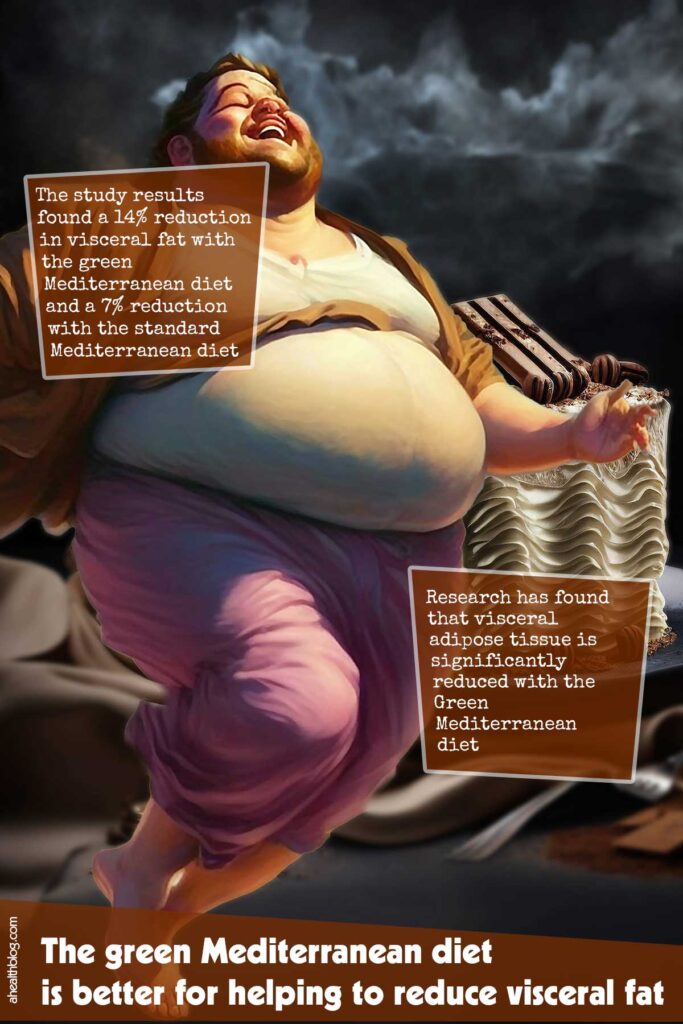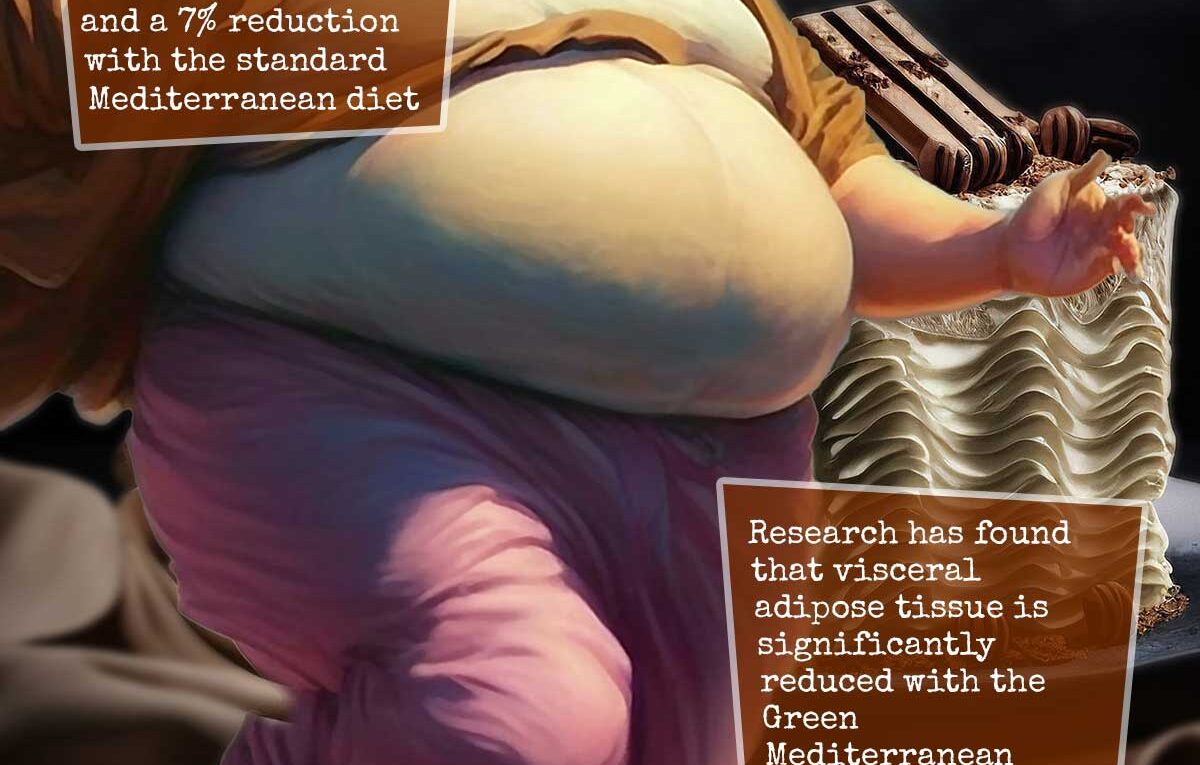Green Mediterranean Diet: A More Effective Way to Reduce Visceral Fat
Studies have demonstrated that visceral adipose tissue, the type of fat surrounding internal organs that poses far greater health risks than having an excess waist circumference, can be significantly decreased with following the green Mediterranean diet.
In the large-scale 18-month long DIRECT PLUS study involving 294 individuals, comparison was made between the green Mediterranean diet and standard Mediterranean diet as well as healthy eating regimens.
Study results revealed a 14% reduction in visceral fat with the green Mediterranean diet, 7% for standard Mediterranean and 4.5% with healthy diets.
Reduce visceral fat is considered to be the true goal of weight loss as it serves as a better measure of health than an individual’s weight or waist circumference. Visceral fat accumulates between organs, producing toxic hormones linked with dementia, diabetes, heart disease and premature mortality.
Researchers were the pioneers of the green Mediterranean diet concept. This modified version includes less processed/red meat consumption while being richer in dietary polyphenols than its traditional version.
Individuals consuming 28g of walnuts daily also consumed 3 to 4 cups of green and 100g of duckweed shake each day as part of a meat consumption replacement regimen. Duckweed contains numerous polyphenols, minerals, vitamins, B12, iron and bioavailable proteins which served as replacement sources for their daily meat intake.
Research conducted so far has demonstrated the numerous health advantages associated with eating a green Mediterranean diet, ranging from microbiome support to protecting against age-related degenerative diseases.
The study results demonstrated that food quality is just as significant as calories consumed, and their purpose was to better understand how different nutrients affect fat cell differentiation and their accumulation in viscera; these included polyphenols as positive nutrients while processed red meat and empty carbohydrates were considered negative ones.
Visceral fat reduction of 14% can be accomplished with just some simple changes to lifestyle and diet, and weight loss is likely an added bonus if pursued in tandem with visceral fat loss.

